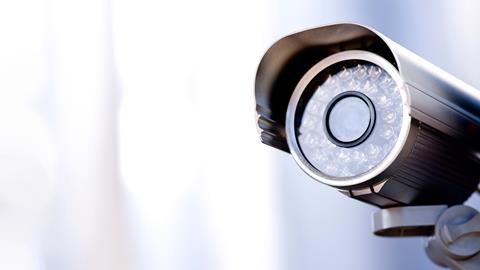A specialist surveillance company has been slated for ‘extremely poor’ behaviour in a High Court personal injury case.
The Surveillance Group (TSG) was instructed by Jackie Walsh, who was sued by motorcyclist Michele Perrin after a road traffic accident. Perrin sustained multiple traumatic injuries and sued for negligence, but the defendant became concerned that the extent of the claimant’s injuries had been exaggerated and instructed TSG to carry out covert surveillance on her.
The claimant said she had difficulty with the function of her thumbs such that she could not use a mobile phone, but the footage allegedly showed her using her mobile phone in her hand, while pushing a trolley, cleaning the rear light of her car and lifting a rollator walker into and out of the car.
Perrin also said she could not lift a kettle and stated in her witness statement that it was painful to lift a kettle, but the surveillance footage allegedly showed her lifting and carrying bags of compost onto a trolley, carrying a Henry vacuum cleaner, unloading bags from the boot of her car, lifting a mobility scooter in and out of her car and lifting a rollator in and out of her car.
But the claimant argued Walsh should not be permitted to rely on the footage, alleging ‘numerous examples of misfeasance’ in the way footage was edited, in the way footage was obtained and went missing and the retention of SD cards.
In Michele Perrin v Jackie Walsh, Judge Grimshaw, sitting as a deputy master, rejected the contention that failures on the part of TSG were ‘part of a deliberate and dishonest attempt to provide a misleading picture’ of Perrin’s disabilities.
But Grimshaw found TSG had made ‘fundamental and repeated’ errors in its process of editing the surveillance footage. Two TSG employees ‘negligently failed to include patently relevant material of the claimant within the edited footage that they prepared and then provided witness statements to the court stating that no footage of the claimant had been excluded from the footage when it had’, the judge said.
‘Whilst the conduct of TSG in this case is/was extremely poor, I am not satisfied that the threshold has quite been reached such that the surveillance evidence in this case should be excluded, but it was not far away. The providing of patently untrue witness statements to the court, endorsed with statements of truth, is a matter of serious concern to the court’, Grimshaw added. ‘It is incumbent on defendants, insurers and those they engage to obtain covert surveillance evidence to uphold the highest standards of integrity and propriety. In my judgment, TSG have fallen far short in this case.’
This article is now closed for comment.




























6 Readers' comments